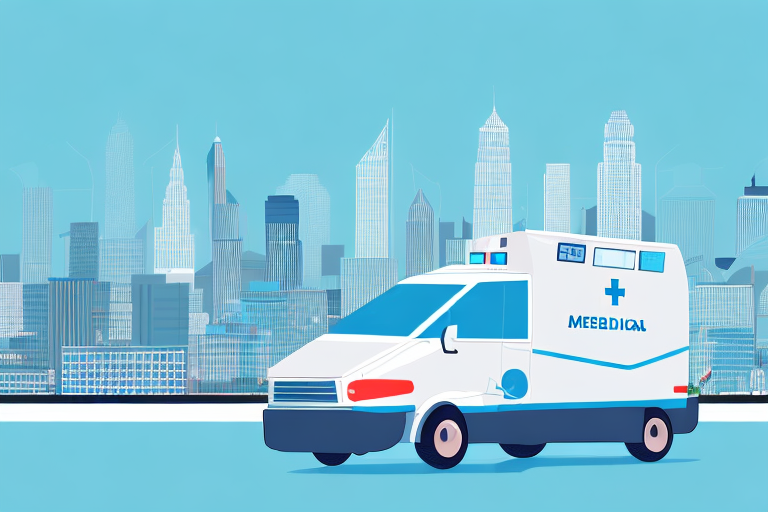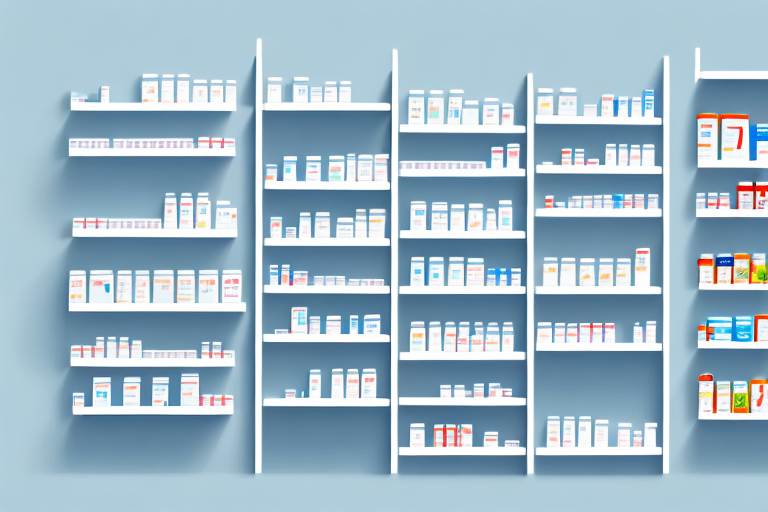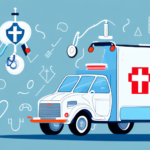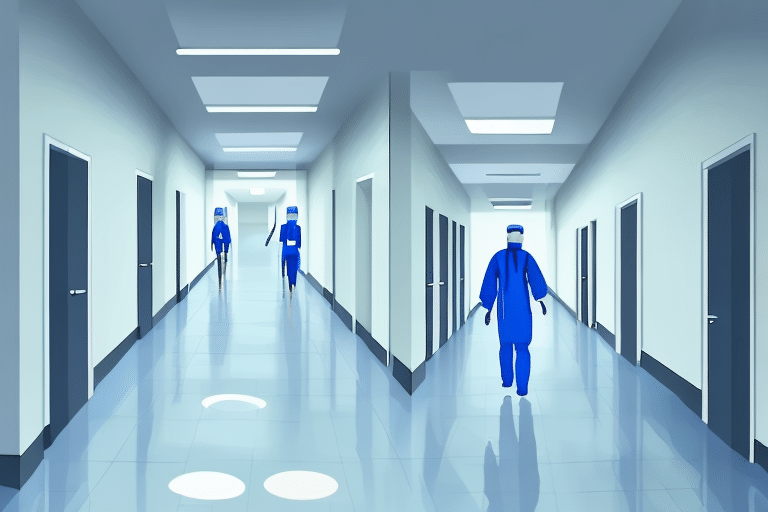Delivering Happiness: How Medical Delivery Services are Improving Lives
Medical delivery services are a vital part of the healthcare industry, enabling patients to receive necessary medications and supplies in a timely and efficient manner. Over the years, these services have revolutionized healthcare by bridging the gap in rural healthcare, reducing healthcare costs, and increasing access to care. In this article, we will take an in-depth look at the emergence of medical delivery services, their importance, and the impact they have on people's lives.
The Emergence and Evolution of Medical Delivery Services
Revolutionizing Healthcare
The emergence of medical delivery services has been a game-changer in the healthcare industry. With innovations in technology, it is now easier and more convenient for healthcare institutions to provide much-needed medications, equipment, and supplies to patients. Modern medical transport vehicles are equipped with climate control features to ensure that medicines, blood samples, or organs remain within the required temperature ranges. Additionally, delivery systems now employ secure and trackable packages, allowing deliveries to be monitored through GPS tracking for secure routes and timely arrivals.
Innovative Technologies Transforming Deliveries
Advancements such as real-time GPS tracking and driver analytics software streamline delivery routes and optimize drive time, enhancing overall efficiency. Robots and drones are increasingly being used to transport both routine and emergency supplies to remote hospital facilities or clinics in rural areas. Moreover, mobile apps and patient portals are improving communication between patients, healthcare providers, and medical delivery services, ensuring seamless coordination and timely deliveries.
Looking into the Future
The future of medical delivery services promises even faster and more efficient systems. Seamless integration with healthcare platforms and the adoption of more sophisticated technologies will likely become standard. Predictive analytics will enable better demand forecasting, ensuring that supplies are available when and where they are needed most. These advancements will further solidify the role of medical delivery services in enhancing healthcare delivery.
Enhancing Healthcare Accessibility and Reducing Costs
Bridging the Rural Healthcare Gap
Medical delivery services are crucial in reaching remote locations, ensuring that patients in rural areas have access to quality healthcare. According to the Centers for Disease Control and Prevention (CDC), rural populations often face significant barriers to accessing healthcare, including long travel distances and limited local healthcare facilities. Medical delivery services mitigate these challenges by transporting medical supplies and medications directly to patients, thereby improving healthcare outcomes in these underserved communities.
Reducing Healthcare Costs
By delivering medications and supplies directly to patients, medical delivery services help healthcare institutions save on transportation costs and reduce the need for expensive emergency services. A report by the Health Affairs journal indicates that efficient delivery systems can decrease overall healthcare expenditures by up to 20%. This cost-effectiveness makes healthcare more affordable and accessible, particularly for uninsured or underinsured individuals.
Saving Lives with Timely Deliveries
The timely delivery of medical supplies can be life-saving, especially in emergency situations. Quick and reliable delivery of critical items such as blood, organs, and emergency medications significantly enhances patient survival rates. For instance, the average time to transport organs for transplant has been reduced by over 30% with the integration of advanced delivery tracking systems, according to a study published in the Journal of Transplantation.
The Role of Medical Delivery Services in Public Health
Distribution of Vaccines and Medications
Medical delivery services play a crucial role in public health by ensuring the timely distribution of vaccines and medications. During the COVID-19 pandemic, these services were instrumental in distributing vaccines worldwide, contributing to the reduction of virus transmission rates. Reliable delivery systems ensure that vaccines reach all populations, including those in remote areas, thereby supporting public health initiatives.
Disaster Relief Efforts
In the aftermath of natural disasters such as hurricanes, earthquakes, and floods, medical delivery services are essential in transporting necessary medical supplies and equipment to affected areas. According to the International Federation of Red Cross and Red Crescent Societies (IFRC), efficient medical deliveries during disasters can save countless lives and alleviate suffering by ensuring timely access to essential medical care.
Ensuring Safety and Compliance in Medical Deliveries
Secure and Tracked Deliveries
Patient safety is paramount in healthcare delivery. Medical delivery services utilize secure and trackable packaging to guarantee that patients receive the correct medications and supplies at the right time. These services ensure that medical items are transported under optimal conditions, minimizing the risk of damage, theft, or loss. This level of security not only protects patient health but also maintains the operational efficiency of healthcare institutions.
Navigating Regulations and Legalities
Medical delivery services must navigate a complex landscape of regulations and legal requirements governing the transportation of medical supplies. Compliance with standards set by bodies such as the U.S. Food and Drug Administration (FDA) and the European Medicines Agency (EMA) is essential to ensure the legality and safety of deliveries. Despite these challenges, medical delivery services continue to operate efficiently by adhering to regulatory frameworks and implementing robust compliance strategies.
Success Stories and the Importance of Collaboration
Real-life Examples of Impact
Numerous success stories highlight the transformative impact of medical delivery services on healthcare provision. For example, in rural India, drone delivery systems have been successfully implemented to transport blood supplies to remote clinics, reducing delivery times from hours to minutes. Similarly, in the United States, partnerships between medical delivery companies and hospitals have facilitated the rapid transport of organs for transplant, saving countless lives.
Collaboration and Partnerships
Effective medical delivery services are built on strong collaborations and partnerships. Working closely with healthcare providers, government agencies, pharmaceutical companies, and other stakeholders allows delivery services to optimize their operations and better serve patients' needs. These partnerships ensure that delivery systems are fast, secure, and reliable, ultimately leading to improved patient care and satisfaction.
The Human Touch in Medical Deliveries
Beneath the logistics and technology lies a dedicated team of professionals who provide compassionate and personalized service. The human aspect of medical delivery services ensures that patients receive not only their medications and supplies but also the empathy and respect they deserve. This personalized approach fosters trust and enhances the overall patient experience, making medical delivery services an integral part of healthcare provision.
Maximizing Efficiency with Data Analytics and Predictive Technologies
Data analytics and predictive technologies are revolutionizing medical delivery services by enhancing efficiency and optimizing operations. These technologies enable the streamlining of delivery routes, reduction of drive times, and minimization of delays. Predictive analytics can forecast demand for medical supplies, allowing for proactive inventory management and timely shipments. According to a McKinsey & Company report, integrating data analytics can improve delivery efficiency by up to 25%, significantly reducing costs and improving customer satisfaction.
Conclusion
Medical delivery services continue to play an essential role in modern healthcare provision. By providing timely, reliable, and secure delivery systems, they have brought hope and healing to patients across the world. The impact of medical delivery services is undeniable, enhancing healthcare accessibility, reducing costs, and ensuring patient safety. As technology advances and healthcare systems evolve, medical delivery services will remain a cornerstone of effective and compassionate healthcare delivery.




















